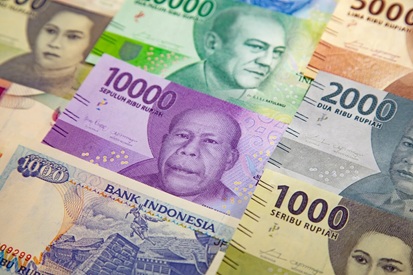

Even if you have already been to Bali, many facts will be new to you. Yes, everyone knows that Bali is a “Mecca” for surfers from all over the world, but this paradise island hides many wonders! And if you are preparing for your first trip to the Island of the Gods, facts about Bali will help you understand what it is like and what to expect from your visit.

Depositphotos
Bali is not one island, but four
The name "Bali" usually refers to the island, but it is also the name of one of the provinces of Indonesia. It includes the main island of Bali, as well as three smaller islands off the coast: Nusa Penida, Nusa Lembongan, and Nusa Ceningan. Incidentally, these islands are popular with tourists, and two of them are connected by a pedestrian bridge: a must-see! The word "nusa" means "island" in Indonesian, but there is also a territory in Bali called Nusa Dua, which is not an island in itself.

Depositphotos
You can rent the house where the movie "Eat, Pray, Love" was filmed
Remember the cult movie with Julia Roberts? Part of the movie "Eat, Pray, Love" was filmed in Bali, in the city of Ubud. The film showed a souvenir market, the main character's house, and a beach in the south of the island, Padang Padang. Since 2019, the house from the film has been available for rent; you can find it on Airbnb. By the way, during filming, the tenants were people from Finland who lived in Bali for 20 years.

Depositphotos
Hindu Island in a Muslim Country
Bali is the only island in all of Indonesia where the majority of the population is Hindu, almost 90%. Balinese Hinduism is inspired by Indian Hinduism but has evolved into a very distinct set of practices that differ from those found in India. The rest of Indonesia is predominantly Muslim. All of Indonesia was once predominantly Hindu, but when Islam began to spread in the 15th century, many Hindus from Java and elsewhere fled to Bali. Since then, the island has largely retained a distinctive mix of Hindu and animist beliefs.

Depositphotos
Traditional holiday - kissing festival
There is a unique tradition in Bali called Omed-Omedan, or the kissing festival. Unmarried girls and single guys aged 17 to 30 can participate in it. This is a ceremonial procession in which guys try to kiss as many beauties as possible, while girls shyly turn away, trying to avoid a kiss.
It ends with the participants simply being doused with water to "cool down". This ritual is over a hundred years old!

Depositphotos
The capital of Bali is Denpasar
Many people believe that the capital of Bali is Ubud. But this is only the cultural capital, where creative people and yoga lovers flock. The official capital of the island is Denpasar, a crowded metropolis that is home to a quarter of Bali's population.

Depositphotos
There are two active volcanoes in Bali
Mount Batur and Mount Agung are active volcanoes in northeast Bali. Batur last erupted in 2000, and climbing to its crater at dawn is one of the best things to do in Bali. Mount Agung is much more active. Between 2017 and 2019, it erupted several times, forcing the evacuation of surrounding villages and the closure of the airport. It is also the highest point in Bali. Mount Agung is considered sacred by the Balinese. It is home to one of the island's most important temples, Pura Besakih.

Depositphotos
The Day of Silence comes on New Year's Eve
If you happen to be on the Balinese New Year, called Nyepi (the date is set according to the lunar calendar but usually falls in March), be prepared to spend the entire day in your hotel. The Balinese celebrate their New Year in a very unusual way. Nyepi is a day of silence, solitude, and reflection. All businesses are closed, the airport is closed, no one uses light or electricity, traffic is prohibited on the roads, and all locals stay at home. Tourists can only enjoy their hotel.

Depositphotos
Three calendars and 1946
In Bali, just like everywhere, it is 2024—but also 1946... Yes, the island uses the Gregorian calendar, but there is also a lunar calendar, called the Saka calendar. The lunar year begins at Nyepi and consists of 12 months. Each begins the day after the new moon. According to the Gregorian calendar, Bali is 78 years behind, so today in Bali it is 1946.
Bali also uses a third calendar, the Pawukon. It has only 210 days and does not correspond to either the Gregorian or lunar calendars, making it almost impossible for the uninitiated to understand. The calendar consists of thirty seven-day weeks, each with its own name, and six thirty-five-day months.

Depositphotos
Bali - "Island of the Gods"
Bali has a charming nickname, "the Island of the Gods," and this is certainly its most famous definition (you can also hear Pulau Dewata or the Island of a Thousand Temples). The reason is that Hindus believe in "Deva"—gods living on Earth. It is believed that each deva lives in a temple, and Bali has more temples than anywhere else on the planet. Hence the second defining name. The word Bali itself means "sacrifice."

Depositphotos
There are only four names in Bali
There are only four common names in Bali. You’ll quickly realize this the twentieth time in a couple of days you encounter Made or Wayan. Balinese children are named according to the order in which they were born, and there are essentially no male or female names. The Balinese traditionally had four children, so there are four common names: Wayan, Made, Nyoman, and Ketut. Those with larger families start the cycle again, naming their fifth child Wayan and so on.
But you will definitely meet people with other names, as there are several alternatives. For example, some Balinese use names that indicate their caste. By the way, nicknames are quite common in Bali—it’s easier to identify who is being talked about.

Depositphotos
Balian - Traditional healers of Bali
In Bali, each village has its own Balian—a traditional healer. Traditionally, they do not take money directly for their practice. Donations must be placed in a special offering (a basket with flowers or fruits), which you place on the altar in the home temple before the session. Healers are so popular among the local population that this has affected visits to hospitals and pharmacies.

Depositphotos
A joyful funeral ceremony
Funerals in Bali are a kind of celebration; an unprepared person might think they are at a wedding. People put on their best festive clothes, have fun, and dance to loud, cheerful music while carrying the body wrapped in a shroud. They even swing it from side to side! It is believed that this will make it easier for the soul to be reborn in the next life. The more people come to this "death festival," the better. The presence of foreigners is considered a good sign. A noisy and cheerful funeral procession carries the body to the crematorium. There is another, even more striking tradition: the bodies are buried, then dug up, the bones are washed in the sea, and wrapped in a clean shroud. A tourist who becomes an accidental witness may be invited to join the ritual. Then the procession goes to the crematorium, where the bones are burned, and the ashes are placed in an urn in the shape of a person.

Depositphotos
Balinese people make offerings daily
Offerings literally litter the streets and decorate shrines across the island. They are called canang sari. These are tiny woven baskets made from coconut leaves, filled with flowers, snacks, and incense. Most businesses in Bali place canang sari outside their doors each morning, and families may place them outside their homes.

Depositphotos
Children under three months do not touch the ground
In Bali, it is believed that when a child is born, it brings with it four angels who are supposed to protect it from evil spirits and misfortune until it is 4 years old. Tradition also prohibits parents from placing a child on the ground until it is 105 days old. This practice is based on the belief that newborns are still close to the sacred realm from which they came and therefore deserve reverence. Belief in reincarnation is widespread in Bali.

Depositphotos
Each village has its own rules
Each region and village has its own "song"—a set of rules that define ceremonies, forms of offerings to deities, traditions of social life, and so on. Perhaps this is partly why marriages between people from different villages are not encouraged. In general, Balinese Hinduism is very flexible, allowing everyone to adapt to the conditions of their region.

Depositphotos
Ice is produced by the state
Drinking tap water is dangerous because it is practically untreated and can be contaminated with bacteria and viruses. Therefore, use only bottled water to avoid discovering what the famous "Balinese belly" is. Ice is produced in state factories from sterilized water, so cocktails do not pose a danger to tourists. However, the methods of its transportation are not the most hygienic, so there are still certain risks.

Depositphotos
Beware of dangerous moonshine
The local moonshine in Bali is called arak. It is a harsh palm vodka made at home the old-fashioned way, by hand, using primitive technologies. Arak is cheap and easy to get. But there is a catch—if you get a "bad batch," you can suffer fatal methanol poisoning. Keep in mind that since the tax on alcohol is quite high, some local bars often use homemade alcohol. Do not take risks; drink only trusted beverages and pay attention to what is poured into your glass.

Depositphotos
The most expensive coffee in the world
In Bali and some other parts of Indonesia, there lives a small animal called a luwak, a lover of coffee cherries. There are many coffee gourmets in the world willing to pay well for coffee made from the excrement of this animal. It is believed that due to fermentation, the coffee acquires a special taste, which can differ with each cup, depending on the luwak’s eating habits. A cup of this unique coffee costs about $50. Unfortunately, on plantations, these once-wild animals were locked in cages, forced to go against their natural instincts, and overfed with coffee beans instead of their usual diet, all for profit. High prices for this unusual coffee have also led to a counterfeit market, so it’s hard to know if you’re getting the real thing.

Depositphotos
The third tallest statue in the world
Near the southern tip of Bali is the Garuda Wisnu Kencana statue, dedicated to the Hindu god Vishnu and his mythical eagle-like bird. This statue is the tallest in Indonesia and beyond: it is taller than the Statue of Liberty in New York. It took 28 years and 120 craftsmen to create, and Garuda Wisnu Kencana was unveiled in 2018.

Depositphotos
Subak is a UNESCO World Heritage Site
The lush greenery of Bali’s rice fields has become the island’s calling card. It is a landmark that tourists come to see, leaving their surfboards behind. In 2012, the traditional rice field irrigation system, used by the Balinese since the 11th century, was recognized as a World Heritage Site and included in the UNESCO list. This unique system is based on the natural difference in altitude, which allows the soil to be saturated with moisture without the use of artificial structures or equipment. The rice fields, stretching for tens of kilometers, have become the island’s main source of sustenance, thanks to the peculiarities of Bali’s landscape. The irrigation system is called Subak: special masters direct water flows using dams and gates to ensure optimal conditions for the harvest.

Depositphotos
There are many abandoned planes in Bali
Besides beaches, mountains, waterfalls, spas, hiking, and Hindu temples, you can always explore the abandoned planes of Bali.
There is a Boeing 737 in South Kuta, another near Pandawa Beach, one on top of a never-opened shopping mall (Gate 88 Mall), and another in West Bali.

Depositphotos
Cockfighting is popular in Bali
The Balinese have a unique cockfighting culture. There are three types of cockfighting: Tabuh Rah, Tajen Terang, and Tajen Branangan. Tabuh Rah is a brutal game where roosters fight until blood is drawn. The blood is an offering to Bhuta Yadnya.
Tajen Terang is a cockfight that involves gambling elements and has no religious significance. Usually, the money from cockfights goes toward village construction. Tajen Branangan is illegal cockfighting, similar to gambling.

Depositphotos
Balinese Hindus don’t eat beef
For the rest of Indonesia, eating pork is "haram," but most Balinese do not eat beef, as it is a sacred animal in their religion. They also do not slaughter cows, as they are considered an incarnation of Lord Shiva.

Depositphotos
Sea salt is produced in Amed
Some families in East Bali and Amed are engaged in the extraction of sea salt. This production requires a lot of energy and labor. As a rule, no more than four or five bags of salt are produced in two days of work. If you visit this area of Bali, buy a few bags of hand-harvested salt as a souvenir.

Depositphotos
In Bali, traffic is on the left side
Brace yourself and fasten your seatbelts—Bali drives on the left. This law was established by Thomas Stamford Raffles in 1811. At that time, he was the British governor of the island of Java, and left-hand traffic spread widely throughout Indonesia, adopting this feature from the British.

Depositphotos
Monkeys can leave you without your belongings
When exploring wildlife, be prepared to meet these mischievous animals. Bali is home to thousands of monkeys, and they are the masters here! More than 700 of them live in the Ubud Forest Reserve alone. The Balinese take care of the monkeys, believing that they protect the sacred lands from evil spirits and other misfortunes. Feeling complete impunity, the monkeys often bite and steal anything they can from people. Be careful with your belongings, especially on the beach if you go swimming.
In Ubud, macaques feed mainly on sweet potatoes with papaya leaves, corn, coconuts, and cucumbers, which are given to them three times a day by park workers. Their diet also includes bananas, which they receive from tourists.
Advice: do not look them in the eyes, as macaques interpret your gaze as aggression toward them.

Depositphotos
More articles
- Indonesia's National Parks: 15 Amazing Reserves
- 17 Temples in Bali You Must See
- Hot Springs in Bali: Which and Where to Visit
- Indonesia's Natural Attractions: 18 Places Worth Seeing
- Meru Betiri National Park in Indonesia
- The Most Interesting Routes in Bali: 12 of the Best
- Mauritius in Winter: Weather and Top Attractions
- Samosir Island in Sumatra: All About Vacationing
- The Maluku Islands in Indonesia: All About Vacations
- 10 Unique Facts About Indonesia



